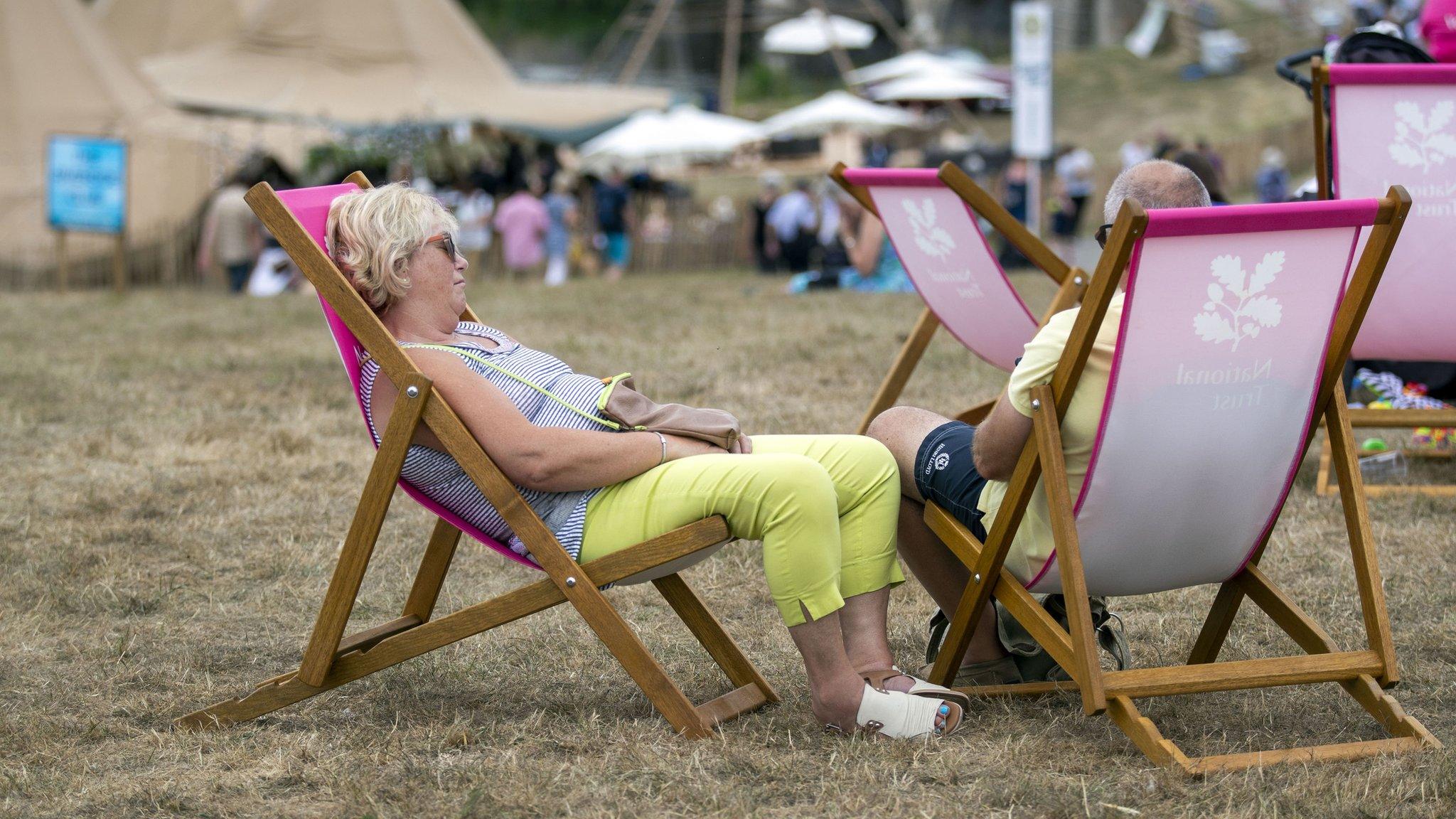UK heatwave: Hottest day of year as temperatures soar
- Published
BBC Weather forecast for the rest of the week - thunderstorms ahead
It is officially the hottest day of the year so far in the UK with temperatures soaring to 35.1C in Surrey.
Northern Ireland, Scotland and Wales saw high temperatures of 26.2-29.4C.
The Met Office says temperatures will keep rising into Friday and the UK's all-time temperature record of 38.5C (101F) - set in Kent in August 2003 - could be beaten.
But parts of England are experiencing heavy rainfall and thunderstorm warnings are in place.
The maximum temperature in Wales was 29.4C in Usk and for Northern Ireland, 26.2C at Giants Causeway.
The highest temperature recorded in Scotland was 27.6C in Dunstaffnage.
Temperatures of 37C (99F) have been forecast in southern, eastern and central England for Friday.
The July record for the highest overnight minimum temperature is 23.3C - and the Met Office says that could be surpassed in south-east England on Thursday.
The UK's current all-time record temperature for July stands at 36.7C, which was recorded at Heathrow in July 2015.
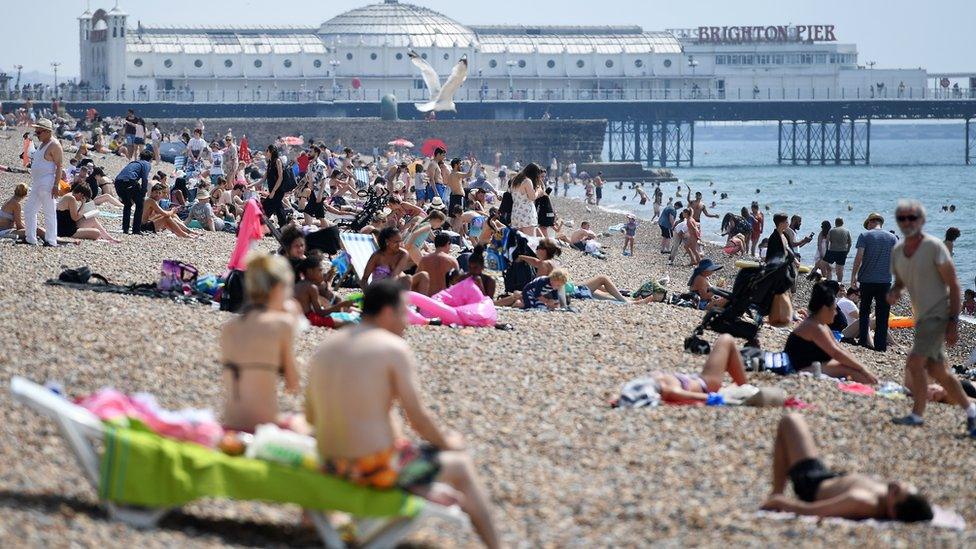
A Met Office yellow warning for thunderstorms is in place in the East and West Midlands, the East of England, London and the South East, and Yorkshire until 21:00 BST on Thursday.
Another will come into force for large parts of England between 14:00 and 23:45 on Friday.
Some places could see as much as 30mm of rainfall in an hour and 60mm in three hours.
X Factor star James Arthur cancelled his open air show in Scarborough because of continued lightning strikes in the area.
And a search is ongoing after a teenage boy went missing after going into the sea near Clacton Pier in Essex.
Allow X content?
This article contains content provided by X. We ask for your permission before anything is loaded, as they may be using cookies and other technologies. You may want to read X’s cookie policy, external and privacy policy, external before accepting. To view this content choose ‘accept and continue’.

High temperatures have been blamed for delays to cross-Channel rail services of up to five hours.
Eurotunnel said air conditioning problems meant some carriages could not be used, which led to the delays.
It added that queues formed on the UK side because of the sheer number of France-bound passengers at the start of the summer getaway.
The RAC said it was expecting breakdowns to be about 15-20% higher than they would normally expect for late July, adding that breakdowns were already up 25% in London.
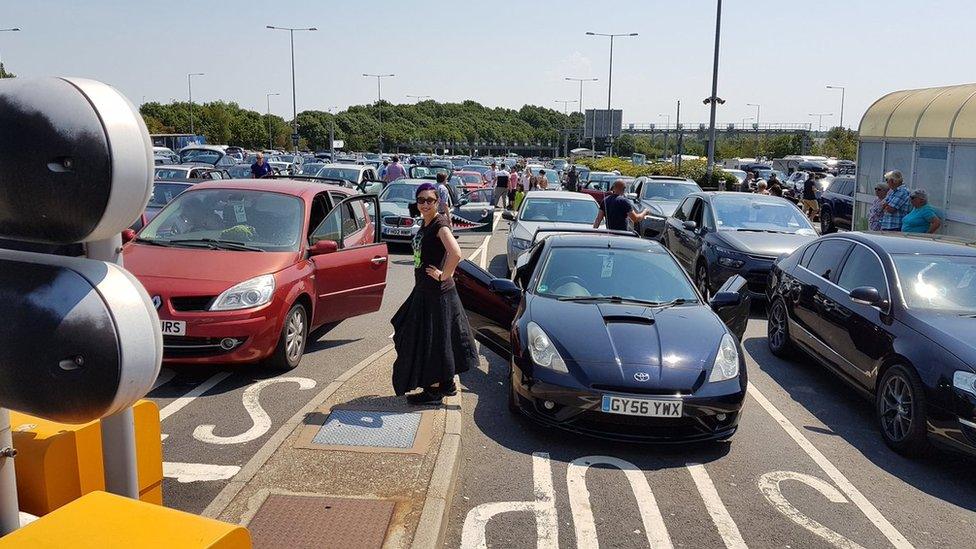
The scene was described on social media as "boarding chaos"
Meanwhile, London's fire chief has called for barbecue bans to be imposed in the capital's parks after a record-breaking number of grass fires.
London Fire Brigade's Commissioner Dany Cotton urged all borough councils to impose a temporary ban in the "tinder dry capital" as it was "only a matter of time" before someone was seriously hurt.
There have already been 43 large grass fires in London so far this year, compared to seven in the whole of 2017.
Why there were so many heatwaves around the world in 2018
A high pollution warning was issued for London on Thursday, due to a mix of toxic air, extremely high temperatures, emissions from the continent and a lack of cloud.
Young people, the elderly and those with lung or heart problems were advised to reduce strenuous exercise and physical exertion.
Hospitals, too, have been affected by the heat.
The Royal College of Nursing (RCN) said high temperatures were leaving nurses dizzy and exhausted.
One nurse was admitted to A&E with dehydration after working three 12-hours shifts in a row during the heatwave.
Kim Sun-Lee, national officer at the RCN, said: "It is vital employers adapt working practices to the heat - both patients and nurses must have easy access to water, and all healthcare staff should be able to take regular breaks, preferably somewhere cool."
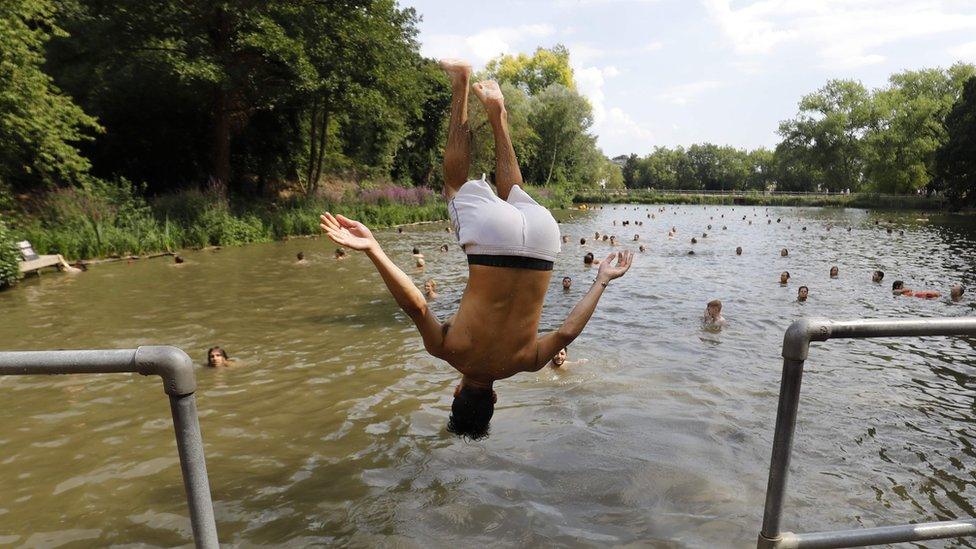
People cool off at the bathing pond on Hampstead Heath, London
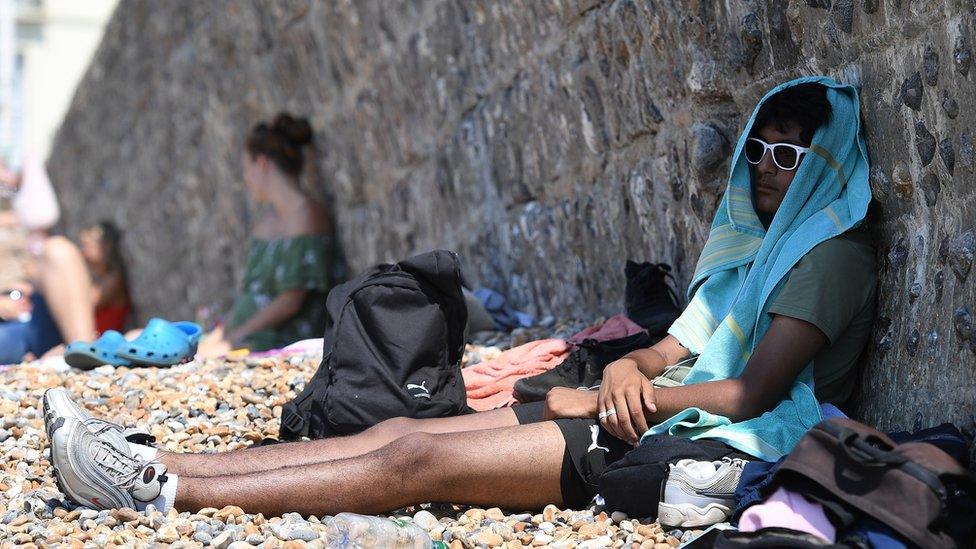
Others try to stay out of the sun, like this man on Brighton beach
NHS Providers - the trade body which represents NHS services - said some hospitals were back to "winter conditions" after reporting record numbers of A&E admissions.
Saffron Cordery, deputy chief executive, said: "We have heard concerns about large numbers of people from care homes requiring treatment.
"This extra activity is leading to delays for patients requiring planned operations such as knee and hip replacements."
Allow X content?
This article contains content provided by X. We ask for your permission before anything is loaded, as they may be using cookies and other technologies. You may want to read X’s cookie policy, external and privacy policy, external before accepting. To view this content choose ‘accept and continue’.

Health officials also said blood supplies had dropped because some people have been too dehydrated to donate, while others have chosen to stay in the sun.
- Published26 July 2018
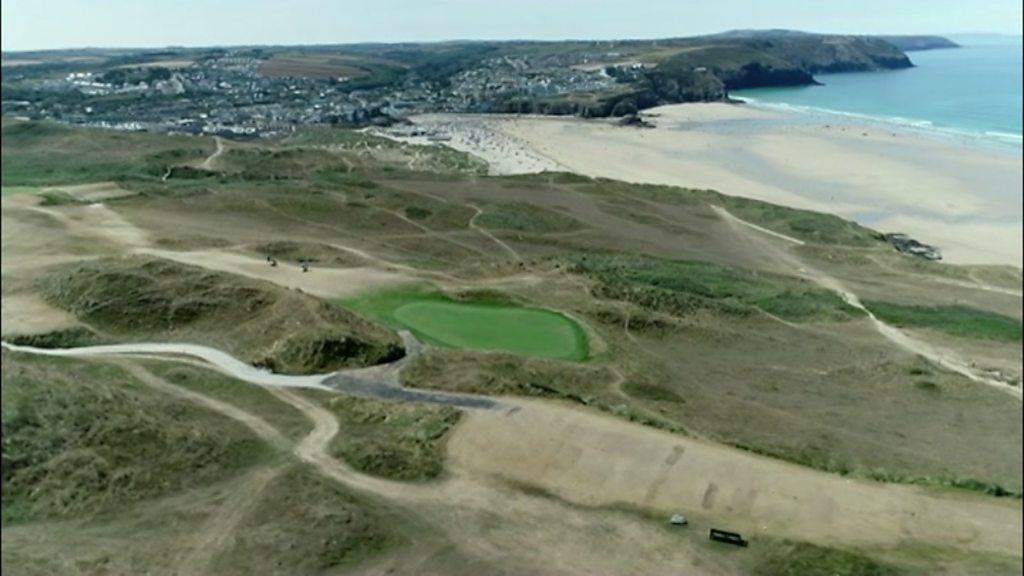
- Published26 July 2018
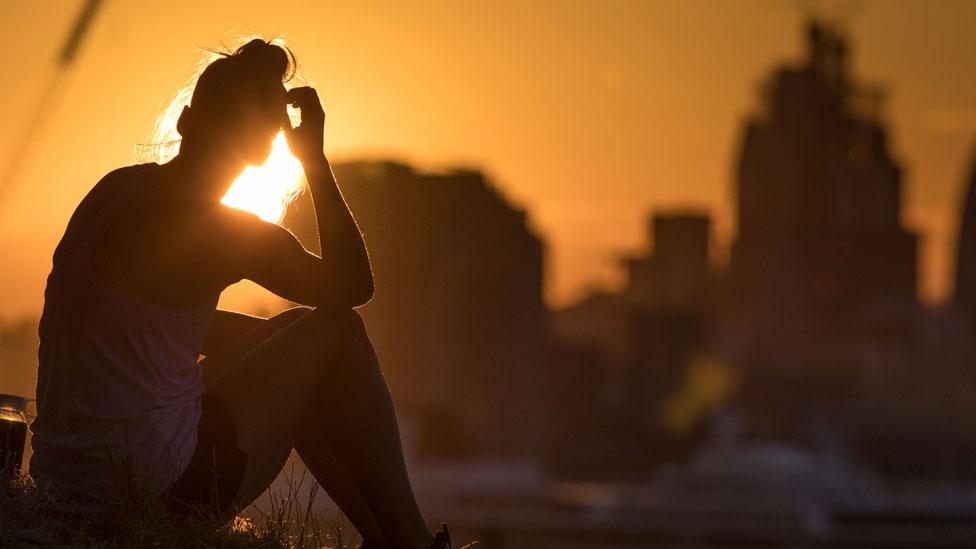
- Published3 August 2018
